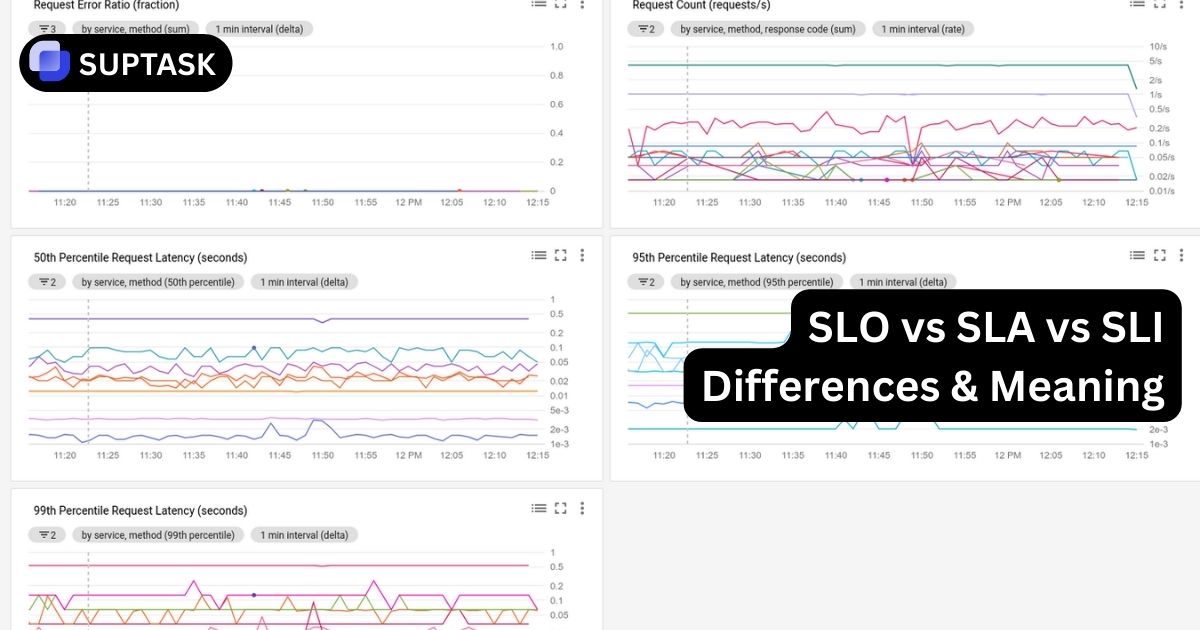The Top 20 Knowledge Base Software Solutions
In the rapidly evolving world of business, having quick and easy access to relevant information can make or break your success. That's where knowledge base software comes in.
By providing self-service support and efficient information management, these software solutions play a crucial role in streamlining your business operations.
To help you make an informed decision and find the perfect fit for your unique needs, we've put together this comprehensive guide showcasing the top 20 knowledge base software solutions available.
Key Takeaways
- Implementing knowledge base software can be a valuable tool for businesses to enhance their knowledge management strategies.
- These top 20 solutions provide a range of features that make collaboration, content organization, and analytics tracking easier.
- When selecting the appropriate solution for your business requirements, it is important to consider factors such as user-friendliness, customization options, and integration capabilities.
Rephrase
Understanding Knowledge Base Software
Knowledge base software is a valuable tool for businesses to create, organize, and share tutorials, guides, and frequently asked questions in one central location.
This software helps streamline the knowledge management system, making it easier for the support team to work efficiently and enhancing the overall customer experience. It offers various features such as content management, search functionality, and customization options. Choosing the right knowledge base software is essential for organizations aiming to improve their knowledge management efforts
Knowledge base tools are incredibly versatile for businesses. They can be used to create internal knowledge bases for employees or external knowledge bases for customers. These tools provide self-service support and foster collaboration within the organization.
By choosing the right knowledge base software, your company can reduce support tickets, increase the efficiency of your customer support team, and ultimately improve customer satisfaction.
Top 20 Knowledge Base Software Solutions
Discover the best 20 knowledge base software solutions that are tailored to meet different business requirements. These knowledge base software platforms offer a range of unique features, including intuitive interfaces, powerful search capabilities, ticketing system and customizable options.
By implementing these solutions, you can optimize your organization's knowledge management processes and confidently select the one that best suits your specific needs.
Suptask offers a free version for your company team. Try now.
1. Suptask

Suptask is a tool created to enhance internal knowledge sharing and to promote better collaboration among teams, as a halp alternative.
It offers customizable branding options, content management features, analytics capabilities, customer feedback mechanisms, full-text search functionality, and a selection of pre-designed templates. With all these tools, Suptask delivers a comprehensive internal knowledge base solution for businesses.
Try Suptask free version to improve your team work flow.
2. Guru
Guru is a wiki software solution that aims to gather and organize team knowledge, highlighting the connections between different pieces of information. One of its unique features is its smooth integration with popular tools like Microsoft Teams, email, Slack, and CRM systems. This makes Guru an exceptional choice for teams looking to enhance collaboration and facilitate knowledge sharing.
When creating a card in Guru, the process is simple and involves a few steps. First, you provide a title for the card. Then, you can format the content of the card to make it more visually appealing and organized. Next, you select a Collection where the card will be stored for easy retrieval later on. Finally, you set a verification
3. Helpjuice
.webp)
Helpjuice is a flexible knowledge base software solution, providing the following features:
- Personalization of your knowledge base portal in line with your branding
- Collaboration tools
- Customizable design
- Search engine functionality
- Analytics dashboard
- Multi-language support
4. Bloomfire
Bloomfire is a platform designed to promote knowledge engagement and alignment among remote teams. It provides powerful features such as AI-powered search, user-generated FAQs, and compatibility with various media formats.
This makes it an effective tool for managing and sharing knowledge within organizations. With a starting price of just $25 per month, Bloomfire offers an affordable solution for businesses seeking to enhance their knowledge management processes.
- Like posts
- Share posts
- Comment on posts
- Follow posts
This promotes collaboration and knowledge sharing within the team.
5. Document360
Document360, a user-friendly knowledge base platform, provides the following features:
- Editorial workflow
- Version control
- Content organization capabilities
- Real-time search
- Remote access
- Analytics
- Content categorization
- Customization features
Document360 offers a complete solution for businesses seeking to efficiently create and manage their knowledge bases.
With pricing starting at $99 per month, Document360 offers a compelling solution. They even provide a 14-day trial period, giving businesses the opportunity to test their software before making a commitment.
What sets Document360 apart is its emphasis on analytics, empowering businesses to track the performance of their knowledge base articles and make data-informed enhancements.
6. Obsidian
.webp)
Obsidian is a robust software designed for knowledge base creation, specifically geared towards note-taking and linking capabilities. It empowers users to establish connections between related notes, forming a dynamic knowledge graph that allows for seamless navigation and exploration.
Obsidian provides users with a highly customizable and intuitive interface that offers a clean and organized layout. This layout makes it easy to navigate and access notes, making it an ideal choice for those who want to build and manage their knowledge base.
Compatible with a variety of software and plugins, including:
- Snipd
- raindrop.io
- AnkiBridge
- Apple Reminders
- Beeminder Word Count Plugin
- Annotator
- Things 3
- Hookmark
Obsidian can be easily integrated into your existing workflow and tools, thus enhancing its functionality and versatility.
7. HelpJuice
HelpJuice is a customizable and easy-to-use knowledge base solution that provides a highly efficient customer support service. It offers:
- Personalization of your knowledge base portal to match your branding
- Powerful search functionality
- An analytics dashboard
- Multi-language support
You can get started with HelpJuice for as low as $120 per month, and they even offer a 14-day free trial period so you can test out the software. Elliot Bowman, Data Operations Lead at Entrupy Inc., is one such customer who considers HelpJuice to be the ultimate solution for their knowledge base needs.
8. Wix Answers
Wix Answers is a knowledge base solution that operates on the cloud and caters to the requirements of small and medium-sized businesses. With Wix Answers, businesses can create help widgets and seamlessly integrate them into their products, ensuring customers have an easy and intuitive self-service experience.
Wix Answers provides two subscription plans for their users. The first plan costs $19 per user per month, while the second plan is an additional $11 per user per month. The second plan includes features such as Call Center, Live Chat, and Ticketing System. The platform is designed to be user-friendly for both customers and company teams. It offers a unified platform for engagement, as well as access to product feedback and best practices.
9. BookStack
BookStack is a user-friendly, open-source platform designed for organizing and storing data. It provides a straightforward and self-hosted solution, offering the following features:
- User-friendly interface
- Searchable and connected content
- Configurable settings
- Built-in diagrams
These features make it an excellent choice for businesses looking to create and manage their knowledge bases efficiently.
As a free and open-source software, BookStack offers an affordable solution for businesses looking to create a knowledge base without incurring additional costs.
10. Gainsight
.webp)
Gainsight, the older inSided, offers a complete software solution for knowledge management. With inSided, businesses can provide their customers with easy access to relevant knowledge, updates, and best practices. The platform allows for highly contextual content within the product, making it simple for customers to find the information they're looking for.
inSided offers a range of unique features for knowledge management, such as:
- Community-driven knowledge base capabilities
- Advanced Q&A and discussions
- Events & user-groups
- Support for Single Sign-On (SSO) & Social authentication
Various organizations can benefit from using Gainsight, including technology companies, the real estate industry, home-based fitness companies, and small-to-medium-sized businesses.
11. Notion
Notion is a powerful software that combines knowledge base and project management capabilities. It offers a customizable platform where teams can build a knowledge base system tailored to their specific needs. With features like collaboration with external members, document creation, and client access to channels, Notion provides businesses with a comprehensive solution to enhance their knowledge management processes.
Notion offers the following plans:
- Free personal use plan
- Plus plan for $8/month per user
- Professional Plan for $14/month per user
- Enterprise plans (requires a consultation for a quote)
Notion stands out for its focus on facilitating collaborative task management.
12. Confluence
Confluence is Atlassian's software solution for creating an internal knowledge base. It enables teams to collaborate and share information effectively. Confluence offers various deployment options, including cloud-based, data center, or on-premises solutions, allowing businesses to choose what works best for them.
Confluence knowledge base software offers a range of features such as:
- Knowledge Management
- Collaboration
- Document Creation
- Searchable Documentation
- Task Management
- File Sharing
- Integration with Jira
- User Management
- Security
These features make it an excellent choice for businesses looking to improve their knowledge management processes.
13. Hubspot Service Hub
.webp)
Hubspot Service Hub offers a comprehensive solution for businesses looking to improve their customer support processes. It includes the following features:
- Knowledge base tool that consolidates customer service data for easy access
- Help desk automation
- Logged-in visitor identification
- Customer portal
- Self-service experience
- Conversational platform
Hubspot Service Hub offers a range of features that empower businesses to elevate their customer support and deliver exceptional service.
Hubspot Service Hub provides four pricing options, with a range from $0 to $1,200. Users can also take advantage of a free trial. The experience of using Hubspot Service Hub's knowledge base software is generally positive. Users find it easy to create and manage content for the knowledge base, thanks to its intuitive interface. Additionally, the robust ticketing system enhances user-friendliness.
14. Bloomfire
Bloomfire is a knowledge-sharing platform that offers:
- An AI-powered search engine
- Customizable Q&A capabilities
- Portal customization
- Content categorization
- Rich-text editing
- Integration with collaboration tools
- Analytics
- A community forum
For businesses seeking to enhance their knowledge management processes, Bloomfire offers an affordable solution with a starting price of just $26 per month. Additionally, they provide a complimentary 14-day trial period, allowing businesses to assess the platform before committing to a purchase.
- Like posts
- Share posts
- Comment on posts
- Follow posts
This promotes collaboration and knowledge sharing within the team.
15. MediaWiki
MediaWiki is a software program that powers websites like Wikipedia and other Wikimedia projects. It is unique among knowledge base software solutions because of its:
- Openness and customizability
- Ability to foster collaboration and knowledge sharing
- Comprehensive feature set
- Scalability
- Access control capabilities
MediaWiki offers a comprehensive core feature set, including:
- The capability to attach extensions for additional features
- Email notification alerts
- Sophisticated authoring features such as templates and dynamic lists
- Support for namespaces
MediaWiki possesses these qualities, making it a superb option for businesses seeking to efficiently create and manage their knowledge bases.
The MediaWiki design team is always working to enhance the software's user-friendliness, overall experience, and accessibility. These constant improvements make it an excellent choice for users in search of an efficient knowledge base software solution.
16. ServiceNow
.webp)
ServiceNow is a comprehensive solution featuring:
- Team and customer-facing knowledge bases
- Help desk automation
- Customer portal
- Self-service experience
- Conversational platform
- Integration capabilities
It provides a reliable platform for businesses seeking to enhance their customer support and knowledge management processes. This comprehensive solution enables effective knowledge management through efficient knowledge sharing and management capabilities.
ServiceNow provides a variety of pricing options, with plans starting at $19 per user per month. Additional plans can be discussed through consultation. ServiceNow is renowned for its user-friendly setup and administration, providing training and support to help users develop their skills and access self-help resources.
17. USU Knowledge Management
USU Knowledge Management is a premier knowledge management software that:
- Aggregates essential data, procedures, and knowledge in one location
- Is designed to make high-quality knowledge readily available
- Is employed in customer service, contact centers, IT service desks, and enterprise knowledge management.
USU Knowledge Management offers the following features:
- Cataloging/categorization
- Robust troubleshooting and editorial functions
- Integration with Salesforce
- Capacity to act as a central repository for quality-assured information
These features make it a standout among software solutions.
At USU Knowledge Management, we offer three pricing tiers to cater to different needs. Our Foundation tier starts at just $10 per user per month, while the Pioneer tier is available starting at $15 per user per month. For those looking for more advanced features and capabilities, our Visionary tier begins at $20 per user per month.
18. Shelf
Shelf is a knowledge management software with the following features:
- Automation features
- Robust integrations
- Dropbox and Drive syncing
- Advanced and filtered search capabilities
- Ability to add additional meta information
- Automation tools for creating, publishing, and managing knowledge
- Highly-effective search engine
Shelf offers an affordable option for businesses seeking to enhance their knowledge management processes. Pricing starts at just $26 per month, and they even offer a complimentary 14-day trial period.
19. Livepro
.webp)
Livepro is a powerful knowledge base tool that enhances customer support and contact center processes. It provides a range of valuable features, including:
- Document capture
- Productivity tools
- Open Access and Web-Answers for easy self-service
- The ability to create multiple sites with tailored content
- A customizable platform with innovative features
RephraseLivepro provides a variety of pricing options, with plans that start at $19 per user per month. They also offer additional plans that can be discussed through consultation. Users find the experience of using Livepro's knowledge base software to be generally positive. They report that creating and managing content in the knowledge base is straightforward, and they appreciate the intuitive interface and robust ticketing system, which make it easy to use.
20. Slite
Slite is a software solution designed for internal knowledge management. With Slite, teams can easily collaborate and access important information in real-time.
Whether it's tutorials, meeting notes, internal processes, or training manuals, everything is instantly accessible. The best part? Slite's knowledge base software has a free starting option and offers a standard plan at just $8.00 USD per member per month, making it an affordable choice for businesses aiming to enhance their knowledge management procedures.
Slite offers a comprehensive solution for businesses seeking to enhance their knowledge management processes. Its features include collaboration with external members, document construction, and client access to channels.
Benefits of Implementing Knowledge Base Software
Implementing knowledge base software can greatly enhance your business's customer service, productivity, and information management.
By providing customers with a self-service portal to access relevant information and find answers to their inquiries, companies can improve the customer experience while reducing the burden on support teams. A well-structured knowledge base also enables support agents to quickly access the necessary information, resulting in prompt and accurate responses to customer queries.
In addition, knowledge base software facilitates the efficient management and sharing of company knowledge, ensuring that all employees have access to up-to-date and accurate information. By consolidating all company knowledge and resources in one centralized location, businesses can reduce knowledge gaps and streamline their content management processes.
In conclusion, incorporating knowledge base software can result in enhanced customer satisfaction, heightened employee productivity, and a streamlined and proficient organization.
What are Types of Knowledge Base Software?
There are several options available when it comes to knowledge base software, each designed to meet the specific needs of businesses. Internal knowledge base software is created for internal use within a company, allowing employees to access important information related to support tickets and other relevant data.
Conversely, external knowledge base software functions as a customer-facing documentation website, providing self-service support to customers and clients.
There are various types of knowledge base software available for businesses to choose from, such as cloud-based, open-source, and self-hosted solutions. Some options even offer free knowledge base software.
- Cloud-based knowledge base software is managed online through their designated website.
- Self-hosted knowledge base apps such as WordPress are set up and managed by the user.
- Open source knowledge base software offers the ability to modify the code, though it may not be free of charge.
RephraseBusinesses can make better decisions and choose the most suitable knowledge base software by understanding the different types available that cater to their specific needs.
Comparing Internal and External Knowledge Bases
Internal and external knowledge bases have distinct purposes and target different audiences. Internal knowledge bases are created for internal use within a company, providing support staff and other employees with access to important information related to support tickets and relevant data.
On the flip side, external knowledge bases are customer-facing documentation websites that offer self-service support to customers and clients. When comparing internal and external knowledge bases, it's crucial to consider factors such as accessibility, purpose, and target audience.
Internal knowledge bases are typically restricted to employees and are created to encourage information sharing and collaboration within an organization. On the other hand, external knowledge bases are accessible to customers and clients, with the primary purpose of providing self-service support. They help users find answers to their questions and resolve issues independently.
To make informed decisions about the most suitable knowledge base software, businesses must grasp the fundamental distinctions between internal and external knowledge bases.
Difference Between Help Desks vs. Knowledge bases
While help desks and knowledge bases have different audiences and purposes, they both play a crucial role in delivering efficient customer support. Help desk software acts as Slack ticketing system free that promotes collaboration among support agents to effectively assist customers.
On the other hand, knowledge base software is a repository of documents, articles, and other resources that customers can refer to for answers to their queries. Help desk software, on the contrary, focuses on managing customer support tickets and providing support agents with the necessary information to assist customers efficiently.
While help desks offer direct assistance to customers, knowledge base software is specifically designed for self-service support. It empowers customers to find answers and resolve issues on their own. Both help desks and knowledge bases are vital aspects of a comprehensive customer support strategy, ensuring customer satisfaction.







%20Management%20Frameworks%20to%20use%20in%202026.jpg)





